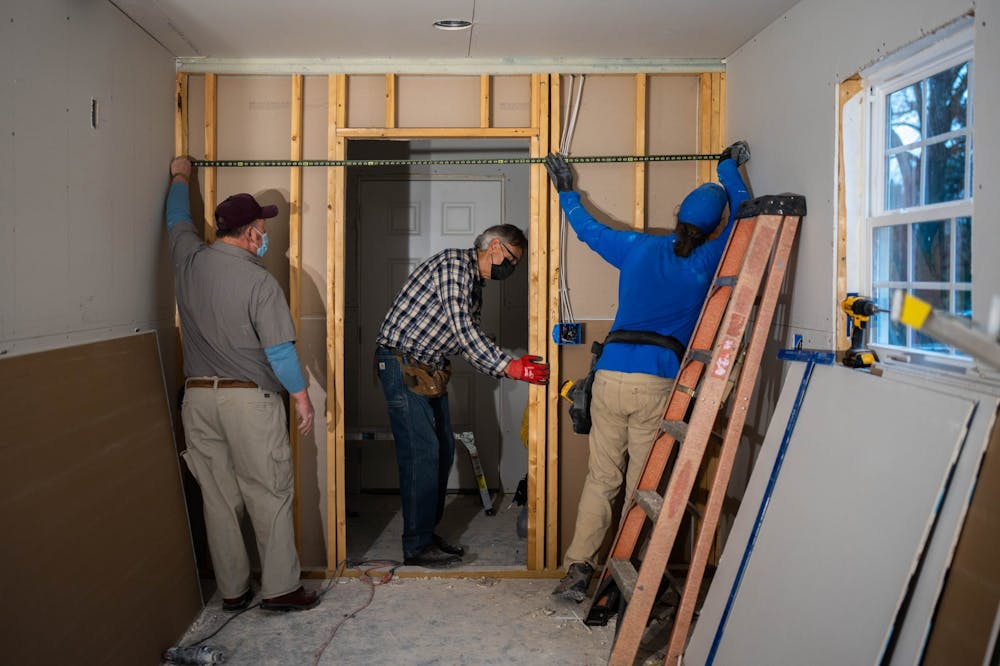To this day, Kevin Gilmore thinks about his winter term trip where he slept on a wooden bunk bed in a tent city with 50 other people. In January 1993, then freshman Gilmore traveled in a van with 13 other Elon students to Homestead, Florida, to rebuild houses destroyed by Hurricane Andrew in August 1992.
“It is strange that after all these years, that was a three-week experience, yet I still stay in touch with most of those people,” Gilmore said.
Gilmore was a part of Elon’s Habitat for Humanity chapter, which was chartered in 1988, along with the Center for Service Learning. The group, Elon’s longest standing community partnership, works toward providing affordable housing in communities and is a subset of the Elon Volunteers program.
According to current adviser of Elon Habitat for Humanity Sadie Richey, housing insecurity is prevalent in Burlington and students have the ability to affect this.
“I think that it is nice on both ends for Elon students to interact with folks in the community but also on the other hand for people in the community to see Elon students as not just a nuisance,” Richey said. “You are able to learn a lot about the prevalence of housing insecurity in the Elon community … There are people who are displaced from their homes in Burlington.”
Today, Elon’s Habitat for Humanity chapter is active in the local community. Around 50 students participated in Habitat projects in the Fall 2021. On Saturdays, eight Elon students spend three and a half hours working on housing construction projects including putting up the foundation, painting and installing trim.
“You don’t need to have any construction experience,” Richey said. “They have a construction manager there who will teach you everything you need to know for that day.”
Senior and student director of the Habitat chapter Faith Glover started out going on builds with friends and enjoyed them so much that she worked up to becoming a director. Glover said she finds being able to get out into the community the most rewarding.
“The coolest part to me about Habitat is that you get to work alongside individuals in the local community and I think that is something that not a lot of Elon students get to do,” Glover said. “Elon is such a bubble and I think better understanding the surrounding communities is super important.”
Glover also said there is a “sweat equity” policy in Habitat which requires all new homeowners to work a certain number of hours whether it be on their home or someone else’s. There is usually a homeowner on site helping students build, according to Glover.
Students in the program also participate in shifts at the Habitat ReStore in Alamance County. Tasks at the secondhand store include organizing donations, pricing objects and helping with checkout.
Habitat ran a “Stud-a-Thon” last semester, where members of Elon’s fraternities painted wooden studs with their fraternity colors. The studs are to be installed in homes this semester.
Gilmore – awarded the Distinguished Alumni Service Award for years of service both during his time at Elon and beyond – went on to become the first paid employee at Sussex County Habitat for Humanity in Georgetown, Delaware.
“The thing I love about service is it brings people together who in the normal course of life may not normally associate with each other,” Gilmore said. “You come together as human beings and interact with each other. It helps us become a more complete people.”
To get involved with Elon’s Habitat for Humanity chapter, students can register for build or store shifts on Phoenix Serve.


